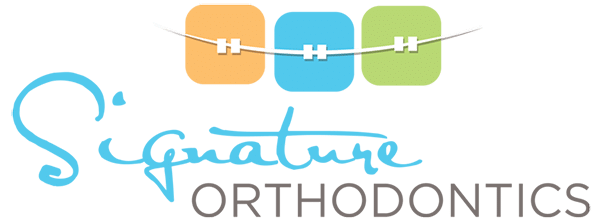When you have braces, flossing is more important than ever! Unfortunately, flossing is also more difficult than ever. Brackets and wires don’t exactly make it easy to maintain impeccable oral hygiene habits, but spend a little extra time to do the job right and you’ll keep your teeth cavity-free and your gums healthy throughout your orthodontic treatment. Here are some strategies for flossing with braces.
Regular Dental Floss
When you have braces, do you need to invest in expensive gadgets and specialized dental floss to keep your teeth clean? Nope! You can use the same waxed dental floss you've always used; it simply takes a little more time and a steady hand. (That said, don't use unwaxed floss, which is prone to shredding when used with metal braces.)
Cut a piece of string dental floss about 18 to 24 inches long and stand in front of the mirror—you’ll need to be able to see what you’re doing! Thread the floss between the wire and your teeth. After you’ve threaded the floss, simply floss as usual, all the way up to the gum line and then back down. Remove the floss from under the wire and repeat on all of your teeth.
You should floss at least once a day, and we recommend doing so at night to remove all food particles that have built up throughout the day before going to bed. If it's possible to fit into your schedule, floss after breakfast and lunch as well.
Water Flosser
Many of our patients invest in a water flosser when they get braces, which makes cleaning between the teeth faster and easier. The most popular brand is Waterpik, although there are others too. The Waterpik brand even has tips that are specially designed for people with braces! Simply glide your water flosser along your gum line and between each of your teeth from both the front and back, as instructed.
Floss Threader
A floss threader makes threading dental floss between your wires and teeth much easier. These tools are frequently sold alongside dental floss in most pharmacies and supermarkets. They can save you several minutes each day on flossing, which can add up quickly when you're racing out the door to get to school or work!
Dental Tape
If you didn't floss before you got braces, it's critical to pick up the habit now. However, flossing can be painful at first if your gums are sensitive and inflamed. If this is the case for you, we recommend flossing using dental tape rather than standard string dental floss. Dental tape glides between teeth more easily since it is smooth, spongy, and thinner than dental floss. Like dental floss, you'll thread it between your archwires and teeth, but it's less likely to cause irritation or bleeding on gums that aren’t used to being flossed.
Ask Us About Flossing During Your Next Visit
If you have questions about flossing, ask us during your next appointment or contact us today.

